
Tom Cowen, head, healthcare, life sciences, Conga, explains how biotech startups use scalable contract management platforms to efficiently manage clinical trials, support CRO partnerships, and accelerate drug development pipelines.

Tom Cowen, head, healthcare, life sciences, Conga, explains how biotech startups use scalable contract management platforms to efficiently manage clinical trials, support CRO partnerships, and accelerate drug development pipelines.

The FDA has approved Eli Lilly’s Inluriyo (imlunestrant), the first oral estrogen receptor antagonist for adults with ER-positive, HER2-negative, ESR1-mutated advanced or metastatic breast cancer, based on Phase III EMBER-3 results showing a 38% reduction in risk of progression or death versus endocrine therapy.

Tom Cowen, head, healthcare, life sciences, Conga, shares how leading pharmaceutical companies are using Contract Lifecycle Management to streamline global studies, reduce onboarding times, and standardize clinical trial processes.
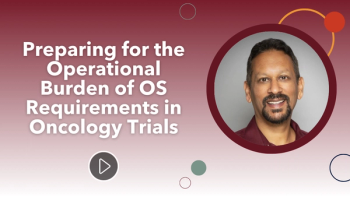
In this video interview, Ananth Kadambi, VP of real-world evidence and modeling solutions at Certara, highlights how clinical operations teams must enhance patient tracking, engage data monitoring committees earlier, and plan subgroup analyses to meet FDA’s overall survival guidance.

Based on Phase III DESTINY-Breast09 results showing a 44% reduction in risk of progression or death versus standard therapy, AstraZeneca and Daiichi Sankyo’s Enhertu-pertuzumab combination could mark the first major advance in this treatment setting in over a decade.

Pharma R&D faces rising trial complexity, high costs, and patient and investigator shortages, driving the need for adaptive models and data-driven strategies to speed therapies to market.

In this video interview, Ananth Kadambi, VP of real-world evidence and modeling solutions at Certara, explains how integrating real-world evidence and predictive modeling early in development can streamline OS-focused trials while meeting regulatory and payer expectations.

Tom Cowen, head, healthcare, life sciences, Conga, outlines how AI-driven contract management helps pharmaceutical companies simplify global clinical studies, reduce risks, and accelerate trial timelines.

As clinical research becomes increasingly digital, integrating rigorous cybersecurity assessments into CRO selection and qualification is essential to safeguard sensitive data and ensure trial integrity.
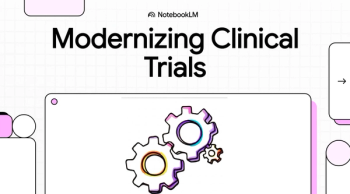
Modernizing Clinical Trials: A Site-Centered Roadmap for the Future Simplifying startup, empowering sites through networks, and adopting evidence-based site selection frameworks can address enrollment bottlenecks, reduce dropout, and strengthen trial efficiency across the research ecosystem.

Tom Cowen, head, healthcare, life sciences, Conga, explains why investigator onboarding creates significant delays in clinical trials and how smarter contract management can help sponsors accelerate study start-up.
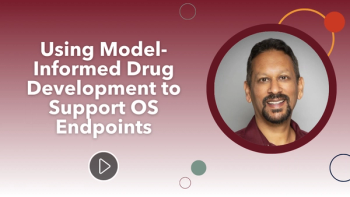
In this video interview, Ananth Kadambi, VP of real-world evidence and modeling solutions at Certara, discusses how model-informed drug development can help sponsors predict efficacy and safety outcomes to align shorter trials with FDA expectations for overall survival.

Michel van Harten, MD, CEO, myTomorrows; and Kyle McAllister, co-founder, CEO, Trially, discuss how artificial intelligence can reduce barriers for underrepresented patients and streamline prescreening and outreach to support clinical research participation.

In this video interview, Ananth Kadambi, VP of real-world evidence and modeling solutions at Certara, explains how emphasizing overall survival ties trial success to both efficacy and safety while also shaping payer and access considerations post-approval.
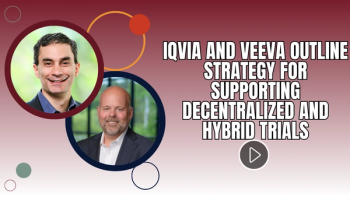
Paul Shawah, EVP, strategy, Veeva Systems and Richard Staub, president, R&D solutions, IQVIA, discuss how their partnership is evolving to support decentralized and hybrid clinical trials by combining advanced technology with operational expertise to improve patient engagement, streamline processes, and accelerate study timelines.

In Stage 1 of the Phase II LANTIC study, Ipsen’s novel recombinant molecule IPN10200 met its primary endpoint with significant improvement at week 4 versus placebo and showed longer duration of effect versus Dysport, with most patients maintaining meaningful response at week 24.
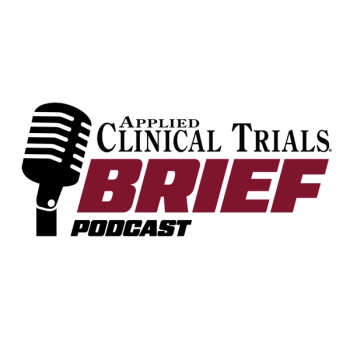
This episode of the Applied Clinical Trials Brief highlights a new global collaboration between two industry leaders, explores how site networks can address enrollment and retention challenges, and examines how generative AI is transforming clinical study reporting.
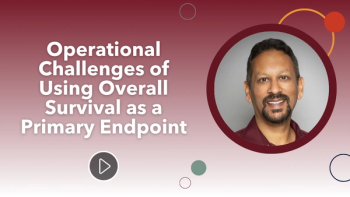
In this video interview, Ananth Kadambi, VP of real-world evidence and modeling solutions at Certara, outlines how FDA’s emphasis on overall survival in oncology trials requires stronger safety monitoring, subgroup planning, and patient tracking.

Paul Shawah, EVP, strategy, Veeva Systems and Richard Staub, president, R&D solutions, IQVIA, explain how their partnership is improving efficiency and data management in clinical trials by integrating best-in-class technology with expert services to benefit sponsors and accelerate drug development.
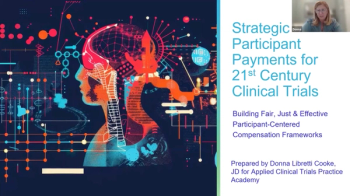
Donna Libretti Cooke, JD, an independent consultant working in the clinical operations space, outlines ways to build fair, just, and effective participant-centered compensation frameworks.

Real-world data from more than 58,000 older adults with type 2 diabetes and cardiovascular disease demonstrate that semaglutide lowers the risk of major adverse cardiovascular events, reinforcing its differentiated profile among GLP-1 receptor agonists.

In an era of constant policy change, timely real-world data is emerging as pharma’s most critical tool to track patient access, anticipate shifts in treatment utilization, and improve outcomes in real time.

Paul Shawah, EVP, strategy, Veeva Systems and Richard Staub, president, R&D solutions, IQVIA, explain how their partnership is accelerating global clinical trials by streamlining processes, improving data management, and enabling sponsors to bring new treatments to patients faster.

The full value of clinical data will only be unlocked by redesigning how it’s captured, connected, and applied to accelerate decisions, improve trials, and better serve patients.

In this episode of the ACT Brief, we spotlight an earlier interview with Ron Lanton, partner at Lanton Law, in which he discussed how rising drug costs, reduced FDA inspections, and potential tariffs on active pharmaceutical ingredients could increase costs and slow progress across the clinical research landscape.

An interim analysis of the TULIP-SC trial found that weekly subcutaneous delivery of Saphnelo significantly reduced disease activity in patients with moderate to severe SLE, offering a more convenient option with a safety profile consistent with IV administration.

In this video interview, Umesh Chaudhari, executive medical director and global program head of the C5 programs at Regeneron, describes how double-blind double-dummy design, site reminders, and patient engagement measures ensured high adherence with quarterly subcutaneous dosing in the NIMBLE trial.

Paul Shawah, EVP, strategy, Veeva Systems and Richard Staub, president, R&D solutions, IQVIA, discuss how their partnership leverages cutting-edge technologies and integrated services to improve data accuracy, streamline workflows, and drive greater efficiency in global clinical trials.

Full patient enrollment in REVEAL-1 (NCT06812325) and REVEAL-2 (NCT06625398) trials mark a key milestone for VRDN-003, Viridian’s promising new therapy for thyroid eye disease.

A quick look at FDA’s 2025 transparency moves, what CRLs are (and aren’t), how FAERS works and its limits, who can report, and where the agency is applying AI.